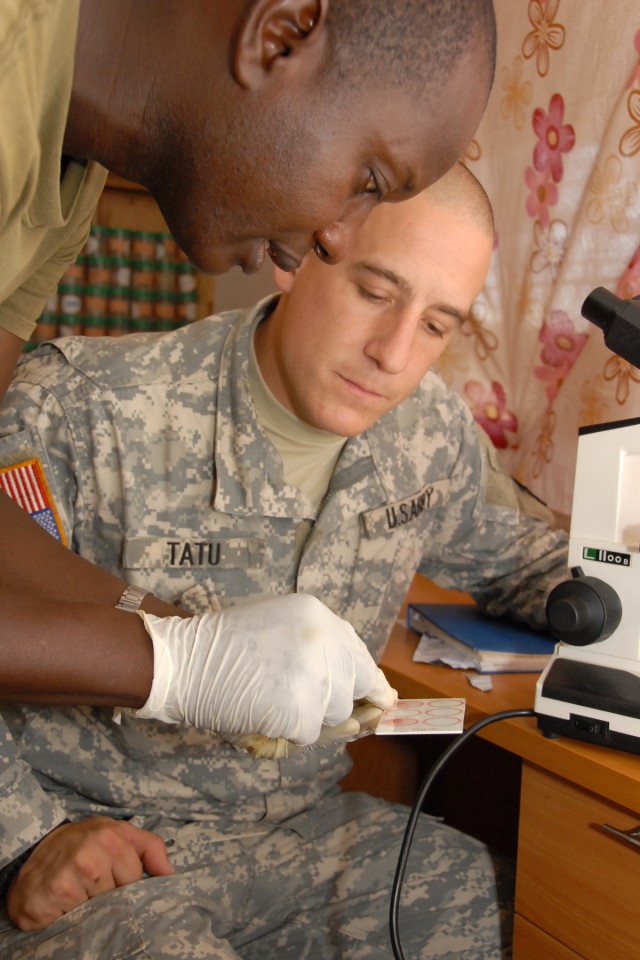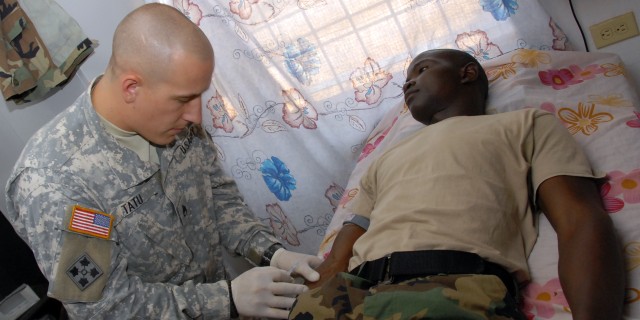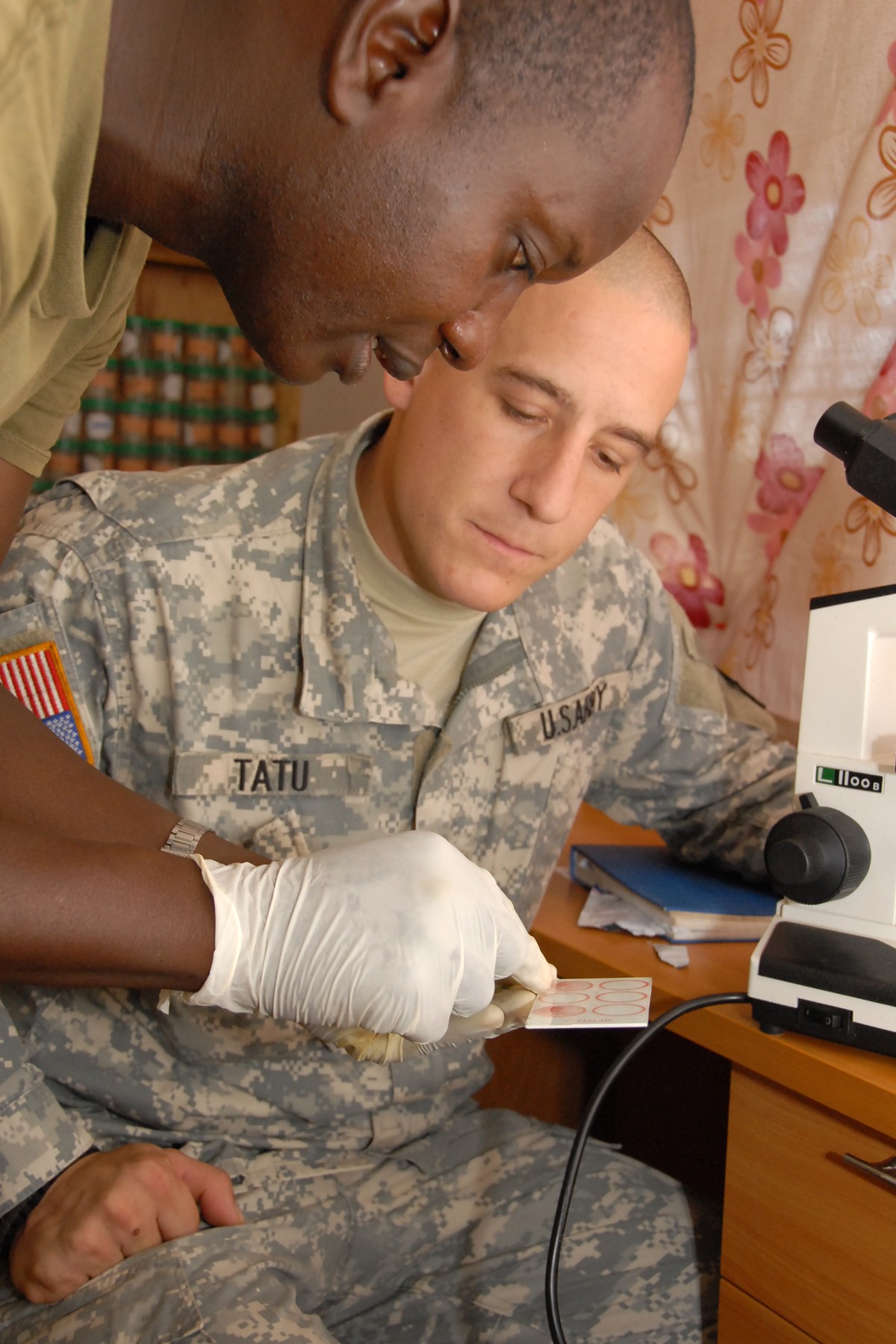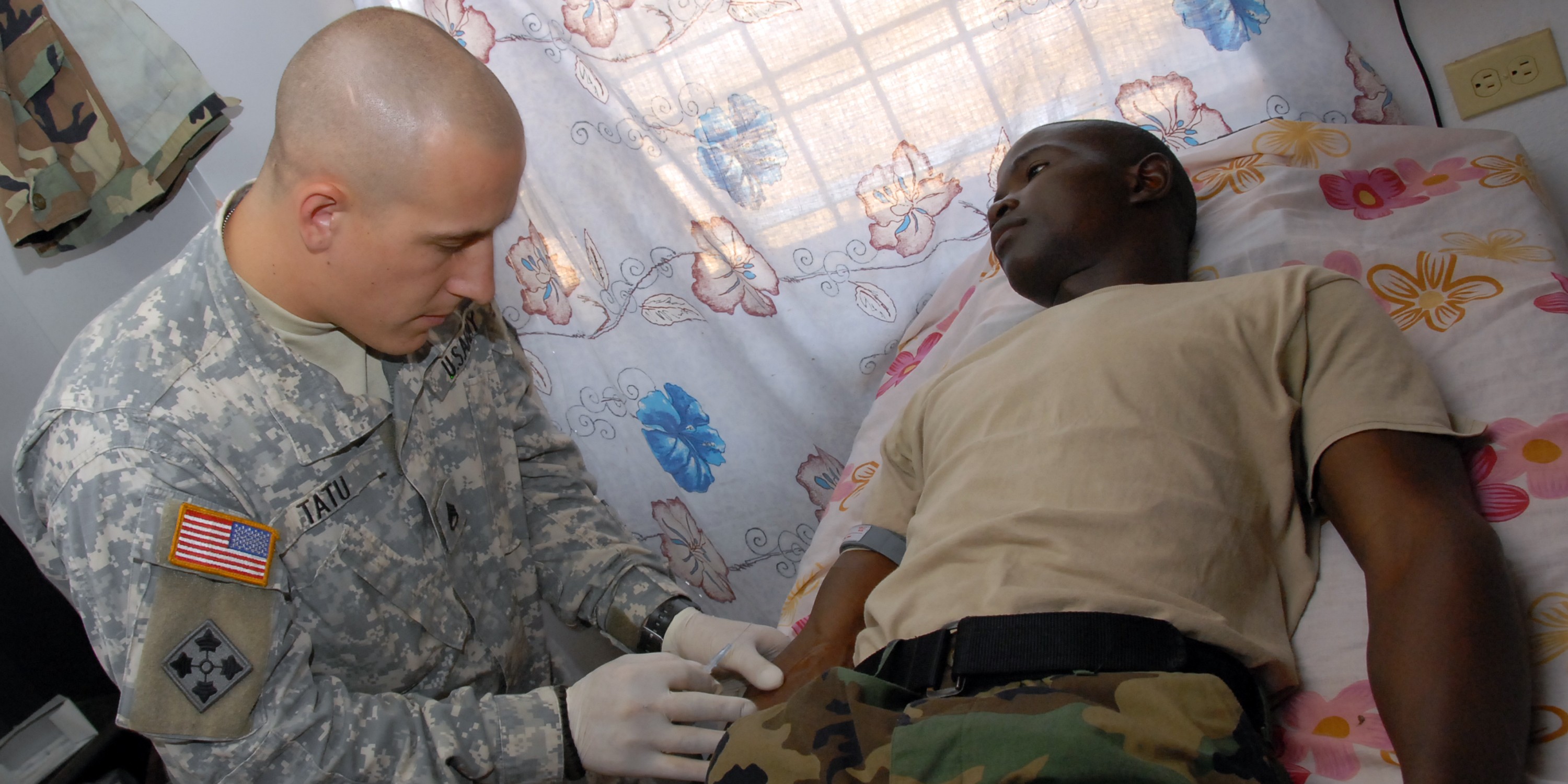MONROVIA, Liberia - Pvt. Umaru Konneh slides a typhoid tainted blood sample under a microscope as U.S. Army Staff Sgt. Mike Tatu leans in for a closer look.
Konneh, an Armed Forces of Liberia lab technician working alongside Tatu at Edward Binyah Kesselly Military Barracks, sampled the specimen from an AFL soldier waiting outside the medical clinic for treatment.
"Look there, you can see what I have found," Konneh said. "This is typhoid."
Having Konneh's laboratory skills and equipment available is a huge plus for AFL soldiers, Tatu said.
"This testing facility allows us to quickly identify the presence of typhoid, malaria and other diseases," Tatu said. "We can begin treatment here, right away."
Tatu, a New Englander who grew up in Gloucester, Mass., and in Maine, is medic from the Fort Sill Oklahoma-based 2nd Battalion, 18th Field Artillery Regiment. He is among several U.S. Army NCOs supporting Liberia Security Sector Reform, a U.S. State Department-led mentorship program designed to build Liberia's military capacity.
Tatu spends each day at base medical clinic, working with AFL medics. Most often, Liberian staff treats daily problems, from routine injuries that AFL soldiers suffer during training to the reoccurring illnesses they endure. Tatu steps in when needed and helps identify possible improvements to the AFL's medical program.
Having a lab at the clinic is more efficient as the nearest hospital is a 45-minute drive away in downtown Monrovia. AFL Soldiers are often referred there for serious illness, but many things can be treated at the AFL base using either oral or intravenous medicines, Tatu said.
Before deploying to Africa, Tatu and his fellow medics underwent extensive training to deal with the hazardous diseases they would face. While U.S. Soldiers take anti-malarial medications and other medical precautions to fend off sickness, many AFL troops live with malaria, which reoccurs and remains for life, Tatu said. Other AFL soldiers face typhoid. HIV is another prevalent disease in Liberia, once often warned against in cautionary posters and billboards.
Tatu, 27, left behind his college studies in international marketing six years ago for a chance to serve as an artilleryman in the U.S. Army. In Iraq he was part of a 155-mm howitzer gun crew. But he yearned for a change, so he requested to attend medical training.
"I wanted to do something that kept me more involved with Soldiers," Tatu said. "As a medic, you're always down there working alongside them."
In early Spring 2008, his unit was assigned to Combined Joint Task Force - Horn of Africa, based in Djibouti. From there, Tatu employed his medical skills during U.S. Army mission in Uganda and Ethiopia.
At the start of 2009, the U.S. Army Year of the NCO, Tatu was faced with a new challenge - use his NCO skills to mentor medical soldiers in Liberia.
While mentoring AFL medics, Tatu has learned how some Liberians place their faith in local healers and practices outside modern medicine. For example, a treatment for stings or insect bites might be to cake mud on the skin and let it dry. Others are herbal remedies past down through local traditions.
"There are AFL soldiers who still prefer that way. It's part of their culture," Tatu said. "It's our job to share ideas about how we treat Soldiers, to include the way our medics conduct business."
When Tatu describes the goal of his mission, he recalls the words of Command Sgt. Maj. Mark Ripka, the senior NCO at U.S. Africa Command, who spoke with the AFL mentors when they first began their assignment.
"If we leave them at a better place than they were before, then we have done our job."




Social Sharing